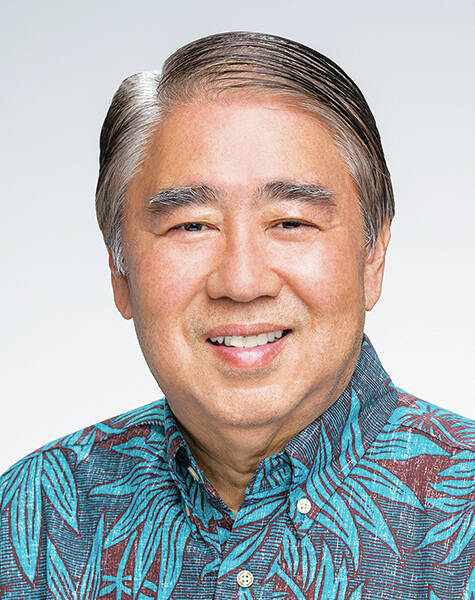The Big Island will gain an eighth seat this year in the state House of Representatives at the expense of Oahu, following an 8-0 vote Thursday by the state Reapportionment Commission.
The commission, with three members voting yes with reservations, agreed to accept a late set of military data state Elections Office staff said was more accurate than previous data that had shown nonresident military personnel and dependents had dropped precipitously from the 2010 census. The increase in the number of military extracted, primarily on Oahu, means the state’s most populous island would have 34 House members rather than 35.
The commission had already accepted a status quo map when the new data was revealed, forcing commissioners to go back to the drawing board to make new maps that reflect the new numbers. The commission’s technical committee plans to have new draft maps available sometime next week and the commission will meet to discuss them the week after that, said Chairman Mark Mugiishi.
“We all know there is no perfect way to do it,” Mugiishi said. “Trying to come up with a perfect way to do it is impossible, so we’re looking for the way that best meets the interests of the public as well as is legally constitutionally defensible.”
The Hawaii County Democratic Party in November asked the commission to take another look at how the nonresident military and students were extracted, saying the numbers didn’t jibe with new information the commission had already received at that time.
Barbara Dalton, county party chairwoman, admitted she was a little pessimistic that the commission wouldn’t follow through. A group of Big Island residents successfully sued in 2011 after the last reapportionment, saying the nonresident military were not accurately extracted, costing the island the fourth seat in the state Senate. Indications were another lawsuit would have followed this year, based on the House seat.
Dalton was ecstatic after the meeting.
“It’s a huge victory for the Big Island,” Dalton said. “We had hoped they would do the right thing and they have proven they will do the right thing.”
Not all testifiers shared Dalton’s sentiment. Several questioned the newest numbers — the third data set the military provided the commission.
“I’m a little concerned we’re thinking of using these last-minute numbers and there’s been no research, no validation,” said Mary Smart, an Oahu resident who’s previously unsuccessfully sought a House seat.
Others, including several members of the commission, questioned why there’s a constitutional requirement to extract nonresident military in the first place.
Commissioner Dylan Nonaka, who was also on the 2011 commission that had to defend itself in the state Supreme Court for the maps that year, said he was voting yes “against all of my better senses and my philosophy and my principles.”
“We’re taking a data set and making a large amount of assumptions based on that data set, to try and do what we think is best to satisfy a very imperfect and somewhat impractical constitutional requirement,” Nonaka said.
Testifier Meizhu Lui, a Big Island resident who served on that island’s Redistricting Commission to draw County Council maps, was sympathetic.
“I feel your pain; I know how hard it is to balance everything,” Lui said. “We don’t want to do any challenges once this map is done. It’s very important that the public does believe their vote is counted correctly, that their voice does matter.”
The new data, presented to the commission Monday, raised the number of nonresident military personnel and dependents to be extracted from 64,415 to 99,967, mostly on Oahu. Adding 7,250 nonresident students, also primarily on Oahu, to the number indicated Oahu should lose one House seat and Hawaii Island should gain one, said commission staffer Royce Jones.
“The military came back and said this is the most accurate count we can give you based on your criteria,” Jones said Thursday.
State Rep. Chris Todd, a Democrat representing the Hilo area, praised the public’s persistence.
“Getting to this point took a lot of hard work from a lot of people. This has been a nine-month effort dating back to the last legislative session, where there was a bill on the table that would have changed the definition of permanent resident to favor Oahu at the expense of Hawaii Island,” Todd said. “This decision is a real credit to a number of community members who stayed vigilant and hopeful, and went out of their way to press the issue.”


